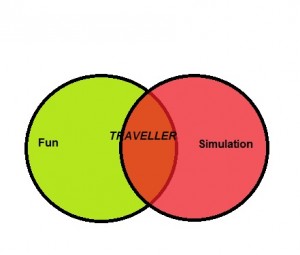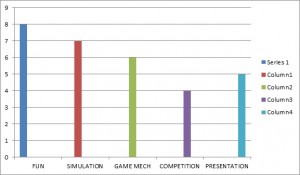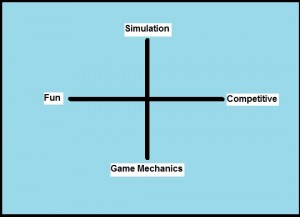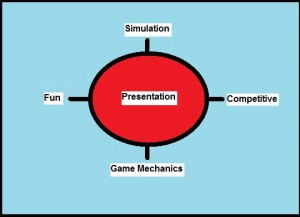OK everyone, I’m afraid this is going to be a blog post on a niche hobby interest so all of you who visit for the film talk and to gawp at pictures of Judy Geeson, you might want to step away now…
Let’s talk about gaming, specifically the wargaming, board game and role playing aspect of it. Right, have the ‘norms’ left the room by now? Good. Let’s proceed.
Have you ever been a member of a gaming group or club and find yourself struggling to cope with some of your other players? Why is that guy such a curmudgeon who hates all your games? Why are those young guys over there never willing to join in a game you’re running and why can’t you stand 4th edition D&D when all those around you love it? Sure, you can chalk it up to personality types and go all Myers-Briggs or you can ignore it and mark everyone else down as twats. However, after much…and by ‘much’ I mean ‘some’…and by some I mean an idea I had in the bath this weekend…..thought and deliberation I have boiled things down and concluded that there are 5 basic gaming motivations that drive players. Gamers will have one that is the primary driver of their gaming tastes and styles; with perhaps one or two others which are strong, but not as much as the primary one. Here are the motivators and you can play along at home at seeing which ones chime with you:
1. FUN
You would think people who like gaming are in it for fun but the word is very subjective, like comedy. Not every comedy website is as universally loved like Rhubba.com ™ and tastes vary enormously. What I mean by fun as a prime motive is the taking part, the sense of camaraderie among other players and the overall experience had. Sometimes that manifests itself playing light hearted or silly games; games that don’t take themselves seriously because the player doesn’t take the hobby too seriously. Winning or losing are of secondary consideration compared with the overall pleasant experience of playing games with friends.
2. SIMULATION
How well does the game simulate the genre it’s depicting? The most obvious examples are historical wargames; can the game simulate warfare accurately enough? Can you win by using real tactics from that era? In non-warfare games, does the game accurately depict trading, colonisation, railway building, farming, construction, power generation? Do you get a real feel for what the game is trying to recreate? Moving along to fantasy and sci-fi, does the game put you into the genre? Do they let you be a character from your favourite books or movies or at least something approaching that? Simulation is about realism, or faithfulness to a genre.
3. GAME MECHANICS
Are the workings of the game important to you? Do you like innovative systems? Do you like games where the rules make sense, not just in the way they are written but in the way they’re played? It’s not about what the game is about, it’s about how it does things. Do you see rulebooks as toolkits that you can wield in clever ways in order to win?
4. COMPETITION
Are you competitive? Is winning important? Does losing hurt? Do you get an adrenaline boost by playing to win?
5. PRESENTATION
Do games that look cheap, old and lacklustre put you off playing them? Do you think your miniatures should look their best? Is great looking terrain important in your games? Would you chose a glossy rulebook over an A4 b&w printed one bound by staples? Is newness a mark of quality?
So, which one is you? You’ll have one that tops your list, probably another that ranks a little lower and 2 or 3 that matter less. Maybe one isn’t you at all. How do we represent your gaming style preferences in graphic form? A Venn Diagram is, sadly, not adequate enough:
A better way is with a bar graph.
Here are what I consider my motivators when I’m gaming. As you can see, I place a big premium on fun. I want to play games in a convivial environment, with good company and the enjoyment of the experience is more important than whether I win or lose, although I do quite like to win sometimes…as seen by my rating of “competition” as a 4 out of 10. If I lose but had a good time, then that’s OK with me. I also like my games to faithfully recreate the genre they’re based on. Is a fantasy RPG allowing me to be a dashing knight, or a mysterious magician or a brave priest of good or is that historical wargame allowing me to use historical tactics? Now being accurate isn’t as important as having fun but it is still important nonetheless. As is having decent game mechanics; can I understand the rules and do the rules support the a) fun aspect and b) the accuracy of it? Finally, I quite like the game to look good; that’s mainly because I like nicely painted miniature figures in a wargame and some eye catching terrain to go with it. But the game doesn’t get ruined for me if it doesn’t.
That’s my tastes, but when I think about those who I’ve gamed with I’ve found that most have at least one category at an 8, 9 or even 10/10. The higher the numerical rating, the more likely you’ll find it becoming a benchmark or deal breaker when choosing what games to play. For example, if you rate Simulation highly then any mistakes or omissions in the rules that jar with your sense of history or genre will become intolerable. If you are competitive and the rules don’t have army lists, points values for troops or a list of victory point objectives, then your enjoyment of the game will be limited.
There are problems associated with having too high a primary gaming motivator. The fun player might ruin a game for the rest by being too flippant or playing their character in isolation from everyone else: “Hey, I know you guys are pissed off at me for wiping out the entire party and failing the mission big time but, hey, it’s only a game!”. Game mechanics can often try to push the rules to breaking point just to see what happens, which again might annoy the other players. Simulation types can bore the pants off you or else drive you to distraction by moaning about the inaccuracies of the game, presentation types get really pernickety about colour artwork in books or your painting techniques and competitive types…well, we all know how they can be if they don’t have some self control.
Some of these categories can, at times, be in opposition, as this graph shows.
It’s not often that someone who values “fun” can be highly competitive at the same time. Also, some who like games to be an accurate simulation baulk at game mechanics that get in the way or somehow deliver an ahistorical outcome. And the presentation? Well, that can’t be represented on a X-Y axis easily but this will give you an idea…
If you rate all categories at an 8 or 9 then you’re so hard to please that no game will satisfy you. If you rated all categories at 0 or 1 you’re not a gamer and why are you still reading? I told you this wasn’t for you.
Interesting things happen when you rate two categories equally high: The killer combos are Simulation-Presentation (button or rivet counters as they are known in wargaming circles) Game Mechanic-Competition (this is where Advanced Squad Leader players dwell) and Fun-Presentation (these guys will insist on you wearing silly headgear to “enhance” the gaming experience). Game Mechanic-Simulation types will ask you straight off the bat whether there are rules for forming square, or overwatch, or interpenetration of units (don’t ask) or whether they can play a specific character from their favourite novel. Triple combos (Game Mechanic-Competition-Simulation) are rare and potentially intolerable around a gaming table as they simultaneously lecture you on how wrong your tactics are whilst stomping you into the ground.
At moderate levels, the combos can enhance a gaming group: For example, a moderate Game Mechanic-Competition player can help the group by remembering all those rules and can keep the game motoring along. At high levels of intensity, they become rules lawyers and hack people off.
Understanding what motivates your gaming influences in turn influences what types of games you like to play. However, games themselves can’t be categorised under this system of mine. Gamers will debate whether some games are accurate, or have good game mechanics or are fun…you only have to witness arguments over 4th edition D&D to see how people who value game mechanics can be polarised over one game. This system is to classify gamers, not the games, but the designers of the game will come under these categories and by understanding how they’re motivated in designing games you’ll understand why the rules and the games are the way they are.
So how does knowing this help us with our gaming? Well, like a Myers-Briggs test can show you what personality types your co-workers are (aha! ENTJ…so that’s why he’s a domineering asshole!), so understanding what your fellow gamers are most looking for in a game can help you in a club or group situation. You will know what kind of games to pitch to which players. Sometimes the motivators aren’t strong (registering on my graph as a 5, 6 or 7) and a player’s prejudices will be under control as they put up with a game that isn’t a favourite but will play nonetheless because of the social dynamic. Other gamers might have very strong motivators (at 8, 9 or 10) that will see them refuse to play a game they think is flawed. In worse cases, the player with the strong opinion might take it out on the player who represents, for them, the wrong gaming ethos: I remember a player who was so competitive he couldn’t tolerate anyone who wasn’t highly motivated to win and would get abusive if they put fun over competitiveness.
Some gamers opt for the solo route; either because there are no other gamers in their area or else they’re registering 10s across the board in their gaming motivations that no one can stand them, but most are part of a club or group. Some clubs attract people of a like mind: Clubs that put a premium on competitiveness or simulation will welcome like minded members and might discourage those whose gaming ethos differs from theirs. I’ve seen clubs cold shoulder and ignore those who don’t ‘fit the bill’ whereas some players might get fed up with the prevailing ethos and go look elsewhere for a club that matches their gaming style. Other clubs are large enough to have multiple groups and games going on and it’s a matter of matching the new gamer with the group with a similar mindset.
However, most clubs are an amalgam of the five player types and their combinations and the trick to getting a good mix and convivial mood is to reign in the more strongly felt motivators and understand the differences between gamers so that everyone enjoys attending the club. This week you might be playing a ‘fun’ game instead of that realistic simulation but next week it’ll be something catering more to your tastes. The competitive players might want to attend a competition and use the club to play a more relaxed game. We can all nod sagely and accept the verbose explanations of the simulator type and maybe not ‘break the game’ in order to show the others a flaw in the system. OK, so it isn’t a Mark IV J panzer but a Mark IV H, does it really matter for a social game? And maybe once in a while we can wear a silly hat for a game. You won’t know who your next club member will be, what games they like and what they’re looking for in a game…clubs that advertise themselves as ‘friendly’, ‘relaxed’ and ‘we will play anything’ should be accommodating to every kind of gamer but, sadly, many don’t live up to their boasts and I believe that’s often down to being fixated on a particular motivation to the exclusion of all others.
Looking beyond clubland, there are the shows and conventions where you can see the motivations and killer combos in action. Demonstration games are classic Presentation-Simulation. Participation games are often Fun-Presentation or the triple combo of Fun-Presentation-Simulation. Games that tend to win best in show awards sometimes achieve the rare Quadruple: Presentation-Fun-Simulation-Game Mechanic. It’s not the games themselves, it’s the players and you’ll find that they’ve ticked 3 or 4 boxes because the club members have come together and used their different gaming motivations to produce a great game. That’s a fine example of co-operation between those with different gaming styles.
So, when you’re next with your gaming group and wondering what to play and a new person walks in, try asking “what’s your motivation?”




